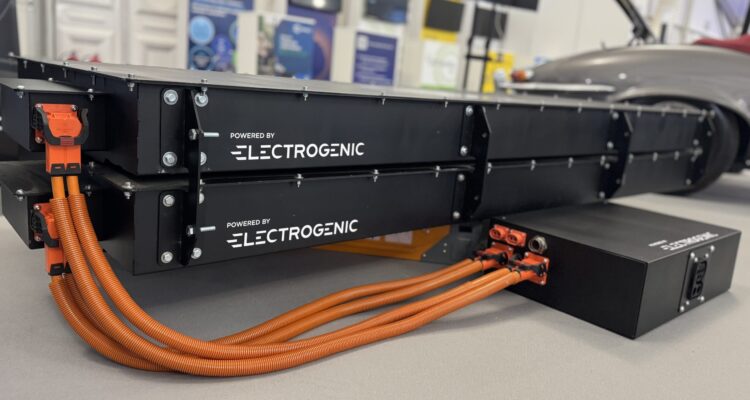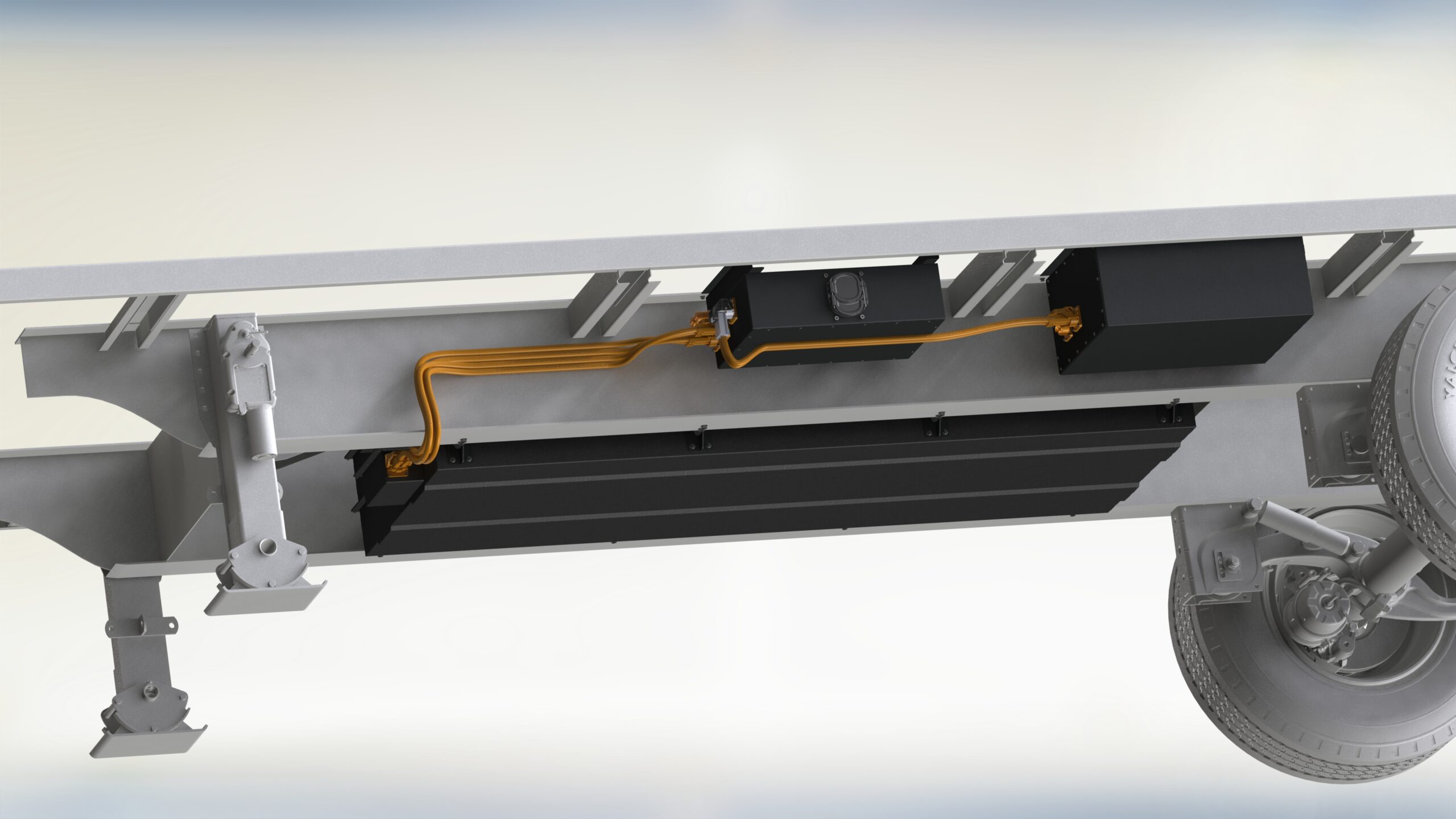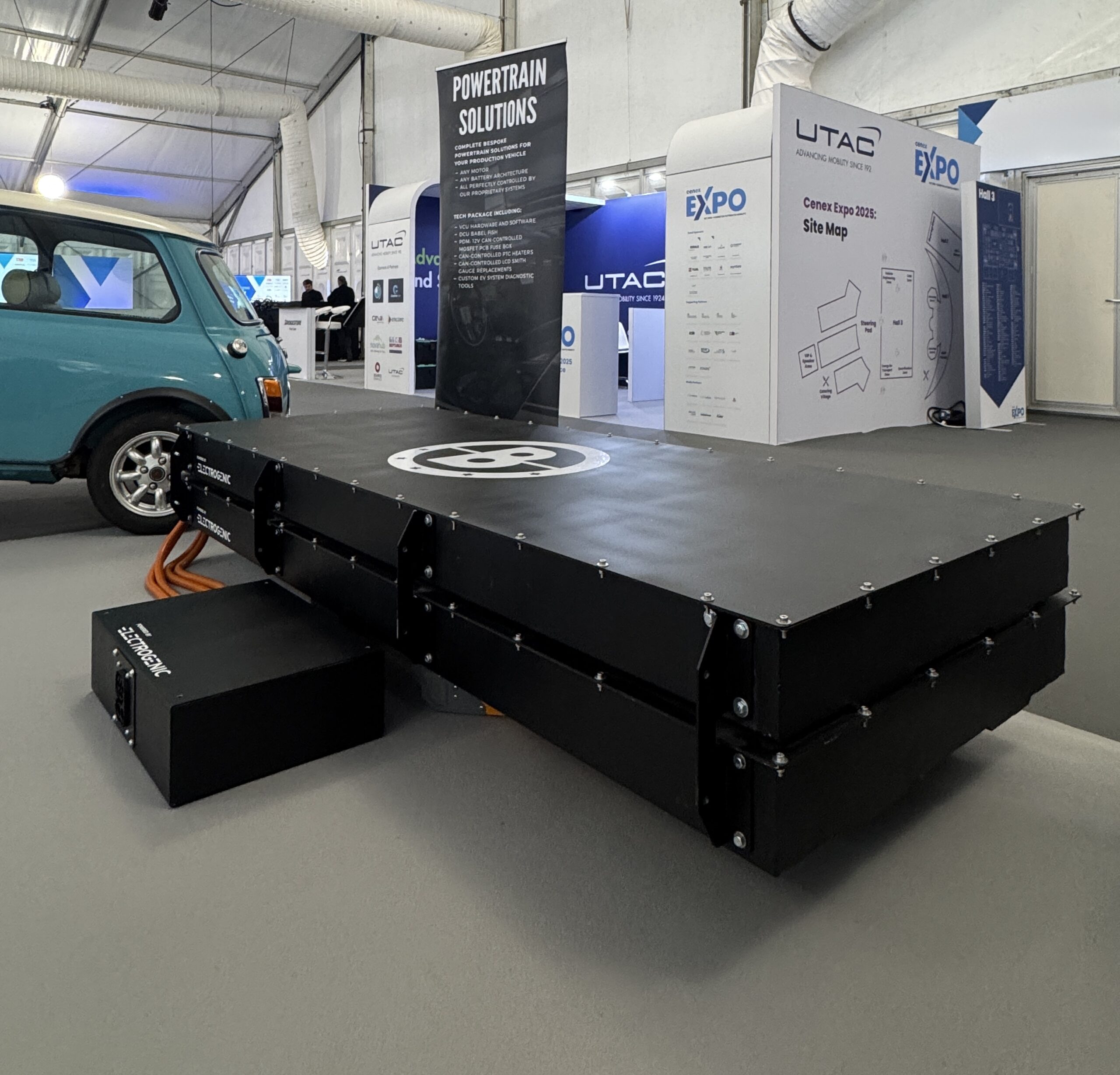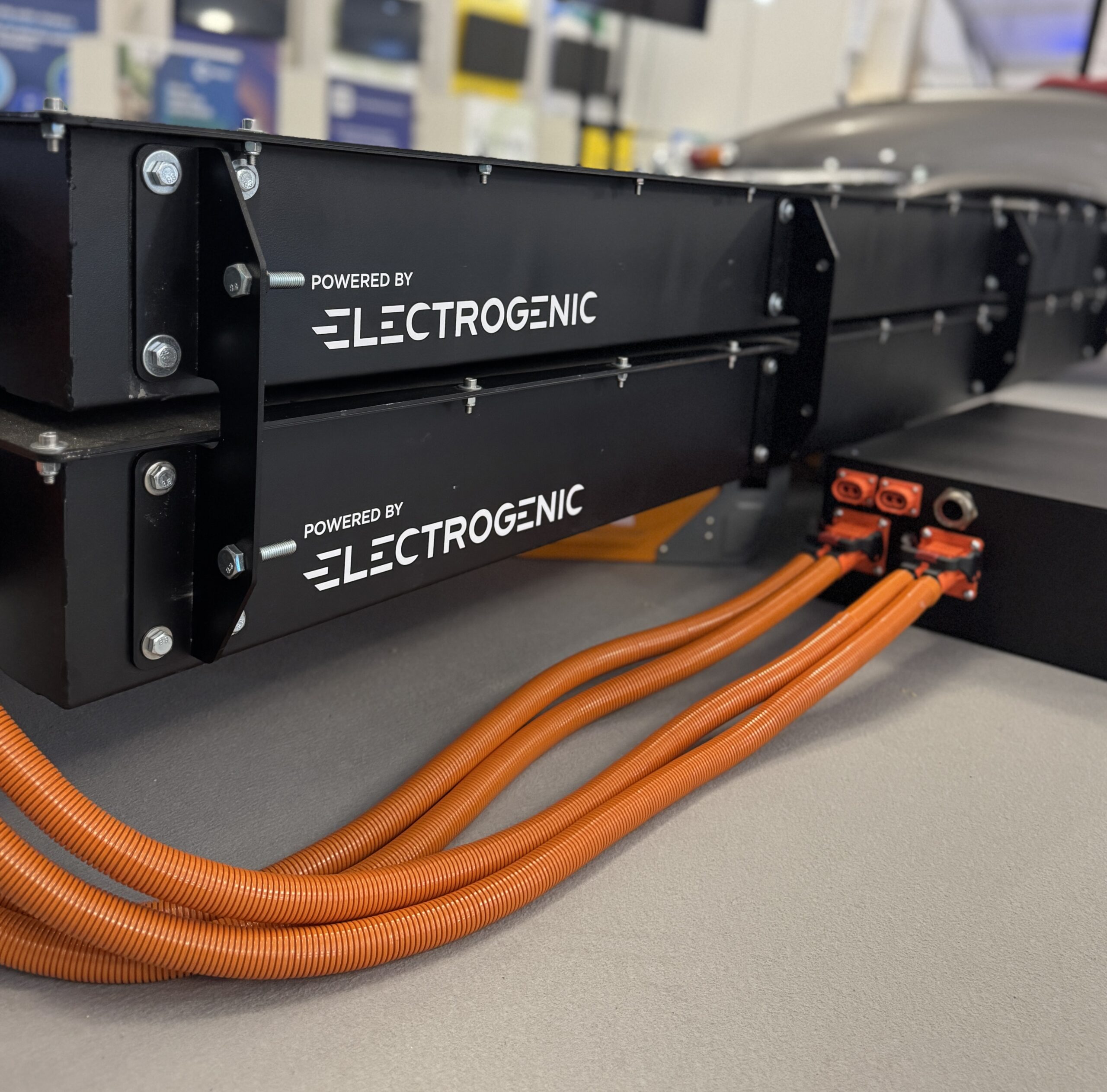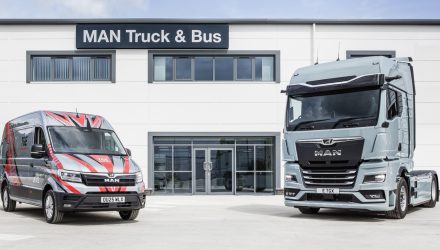Electrogenic, the British EV technology company, has partnered with Berkeley Coachworks, to provide its proprietary Software Defined Vehicle (SDV) software, together with its battery and rapid charging system expertise for the game-changing Bulldog carbon-fibre e-Trailer.
The Bulldog project is a key pillar of the government backed eFreight 2030 consortium, part of the Zero Emission HGV and Infrastructure Demonstration programme funded by Department for Transport, delivered in partnership with Innovative UK and chaired by Sir Vince Cable, which is working to shape the future of low-carbon road haulage.
The partnership, announced at the CENEX show, will see Berkeley Coachworks leverage Electrogenic’s sector-leading (SDV) operating system, ‘EG-OS’, as well as its Defence sector experience and battery and charging expertise, to complement Berkeley Coachworks’ revolutionary trailer technology for the Bulldog e-Trailer, as well as other future eHGV logistics solutions.
Steve Drummond, Electrogenic CEO said: “We’re delighted to announce this partnership with Berkeley Coachworks, and to help to supercharge the development of its Bulldog carbon-fibre e-Trailer. The project is an exciting part of the work being carried out by the eFreight 2030 consortium, an important initiative shaping the next chapter of long-haul HGV transport. We’re proud to be contributing to the project, and to be playing our part in the vital drive towards the decarbonisation of road haulage.”
At the heart of Electrogenic’s technology, and key to the Berkeley Coachworks project, is the firm’s proprietary, in-house developed ‘EG-OS’ SDV (software defined vehicle) control software. The game-changing EG-OS has been designed from the ground up to work as the key to unlock the next generation of software defined vehicles for independent auto-manufacturers and the Defence sector.
Electrogenic’s SDV operating system offers transformative freedom when selecting components, while also giving total configurability, allowing for the precise definition of performance characteristics, drive modes and much more besides. It enables rapid prototyping and ensures a product, such as the Bulldog e-Trailer can be precisely optimised within the parameters set out, with no need for compromise.
The Bulldog e-Trailer, conceived by engineering company Berkeley Coachworks, will deploy Electrogenic’s technology to help deliver a ground-up rethink of what the trailer can be – reimagining it for an age of electric mobility. While it is at its heart a trailer, it is much more than that: it is a 180kWh rolling power unit that can be connected to an electric HGV (eHGV), boosting its range by 50% – all with no loss in payload and seamlessly integrated with Electrogenic’s ‘EG-OS’ software.
The efficiency of the e-trailer is also transformed thanks to drag-reducing Formula 1 ground-effect aerodynamic tech on its underside, and it is light weight: the body is made from carbon-fibre, while the floor is constructed from a durable, strong and sustainable wool-composite.
Martin Rees, Chairman, Berkeley Coachworks said: “The venture between Berkeley and Electrogenic represents the perfect synergy of two uniquely innovative businesses – Berkeley Coachworks’ expertise in advanced trailer engineering and Electrogenic’s cutting-edge electric powertrain technology. Together, we are pioneering a lightweight battery system that will redefine efficiency and sustainability in the semi-trailer sector. By harnessing the capabilities of two highly innovative and supremely talented engineering teams the Berkeley-Electrogenic partnership will go from strength to strength.”
The Bulldog e-Trailer is a key element of the eFreight 2020 consortium, a collaboration between Heavy Goods Vehicle (HGV) fleet operators, vehicle manufacturers, data analytics companies, battery manufacturers, energy suppliers, service station operators, finance companies, Research and Technology Organisations (RTOs) and trade associations.
Set up in 2022, and chaired by Sir Vince Cable, the consortium seeks to transform the heavy goods vehicle market in the UK, creating a widescale switch from diesel to electric power across the industry by 2030, and entirely electrifying the sector by 2035

